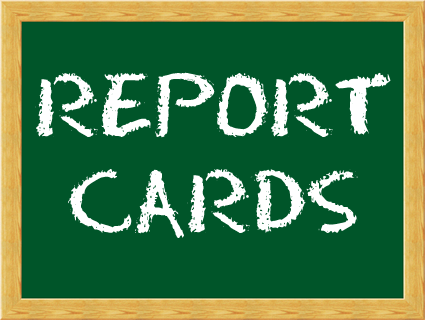How the Report Card Can Up Your Child’s Game
It’s the academic year half-way mark. You most likely got your child’s most recent report card. Did you get a sinking feeling when you saw it? Report cards can bring about a mix of emotions on behalf of your middle school and high school student’s performance. Here is something to consider: those grades are just data points, not a final score on their potential. They’re a springboard for improvement, a chance to up their game.
Decoding the Report Card for Success
Sure, grades and GPAs matter. They open doors to colleges and scholarships. But focusing solely on those numbers can miss the bigger picture. So, let’s dig deeper into that report card. Here are a few things to look for.
Teacher Comments
- These are goldmines of specific feedback. Are there areas where your student excels? Struggles? Use these insights to target support and resources.
Individual Subject Performance
- Is math your child’s weakness? Is writing a breeze? Understanding strengths and weaknesses helps tailor study strategies and identify additional help if needed.
Tracking Trends
- Are grades improving, staying the same, or slipping? This trajectory can reveal underlying issues like learning differences or motivation challenges.
Using the Report Card to Understand Hidden Hurdles
Academic performance isn’t just about studying harder. Knowing how to study is very important. Learning differences like ADD or ADHD can also impact focus, organization, and time management. If you suspect this might be the case, don’t hesitate to seek an evaluation. Early intervention and strategies like chunking information, using planners, and strategies for focusing can make a big difference.
Executive Function Challenges
Beyond diagnosed learning differences, executive function challenges can also affect academic performance. These are essentially the mental skills that help us plan, organize, manage time, and regulate emotions. Struggles in these areas can manifest as forgetfulness, disorganization, and difficulty completing tasks. Working with an experienced tutor can equip your student with strategies to overcome executive function challenges.
Motivation Matters
Let’s face it, even the most brilliant minds can lose their spark sometimes. Motivation is key to sustained academic success. Talk to your student. What are their interests and passions? Can you connect those to their academic pursuits? Maybe a history buff can delve deeper through historical reenactments or research projects. Finding ways to make learning engaging and relevant can rekindle the fire.
Building a Support System
Communication is key. Talk to your student’s teachers and counselor. Work together to create a support system that caters to their individual needs. This might involve tutoring, after-school programs, or simply creating a dedicated study space at home. Most importantly, be their cheerleader. Celebrate their progress, no matter how small. Let them know you believe in them, and that challenges are stepping stones, not roadblocks.
Final Thoughts
So, the next time you see that report card, remember, it’s not a judgment, it’s a roadmap. Use it to identify strengths, address weaknesses, and create a game plan for success. With the right support and strategies, your student can truly up their game and reach their full potential.
________
Does Your Child’s Report Card Reflect Their Smarts?
At Successful Study Skills 4 Students we believe every student has the potential to do well in school.
Call us today for a free consultation and to discuss how we can support your child.

